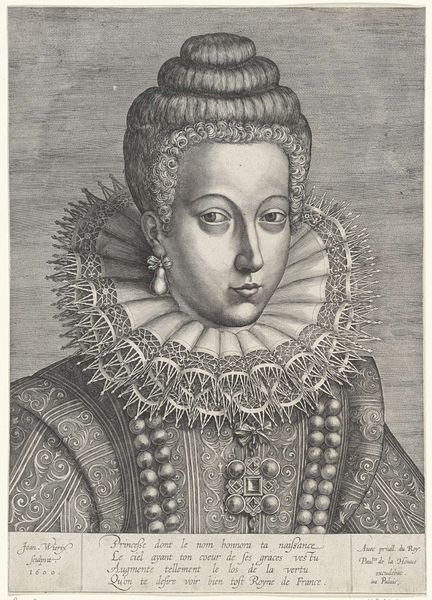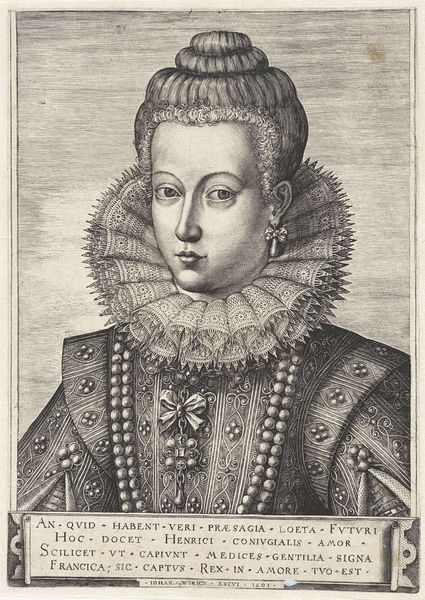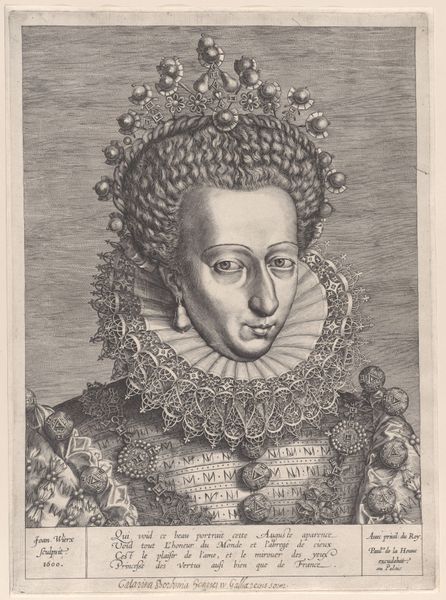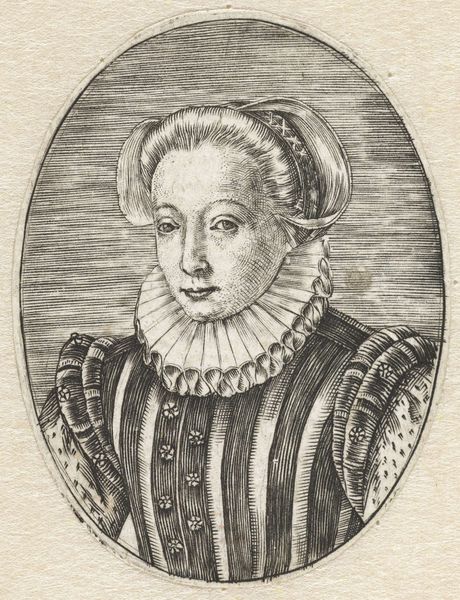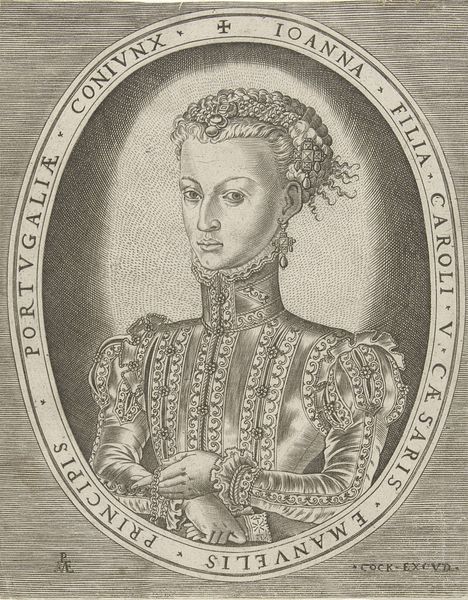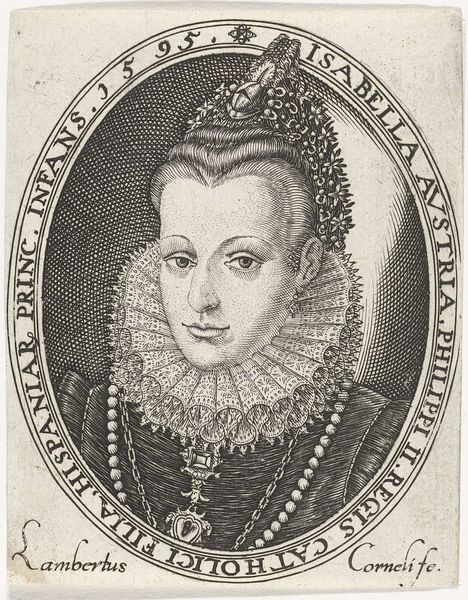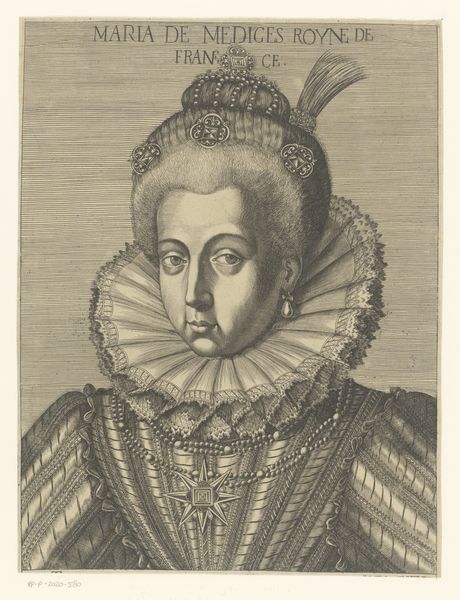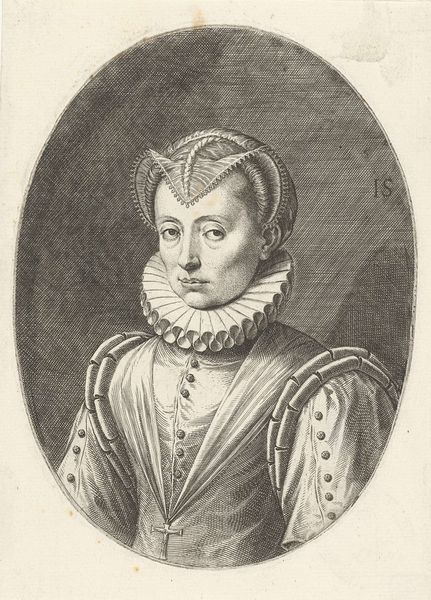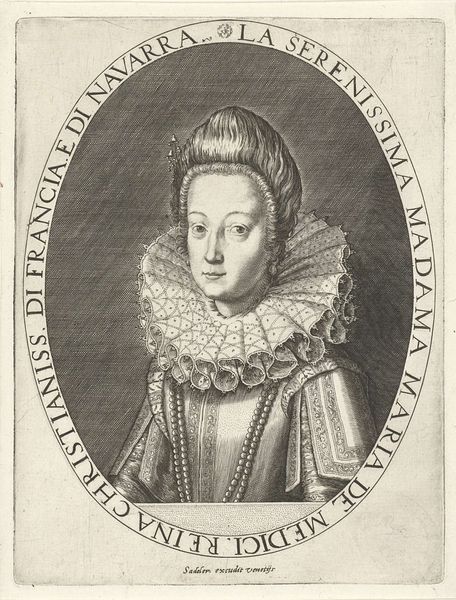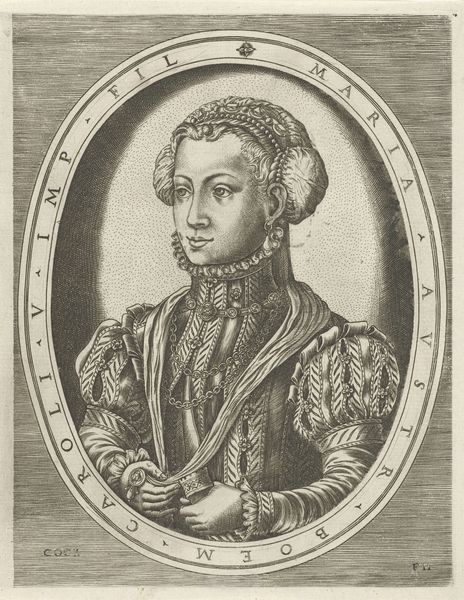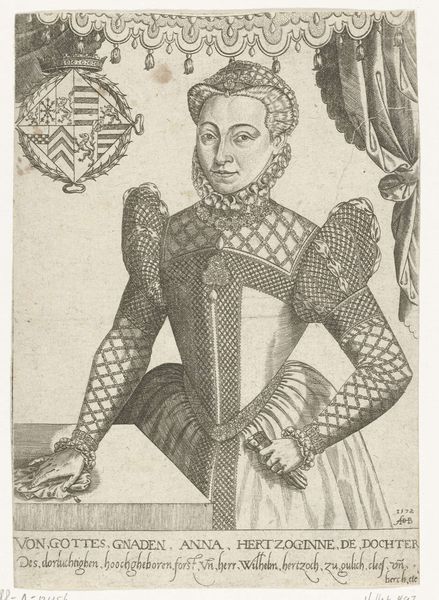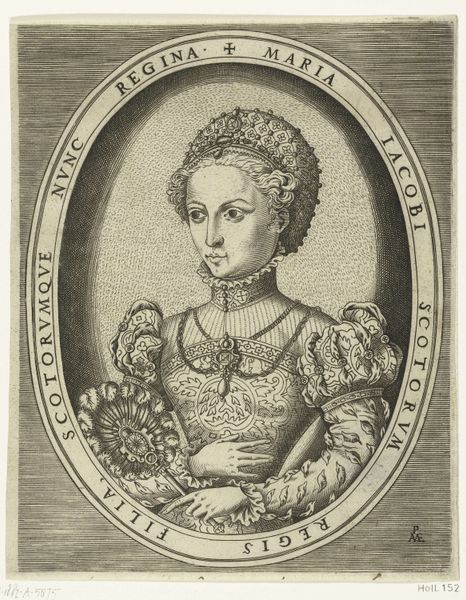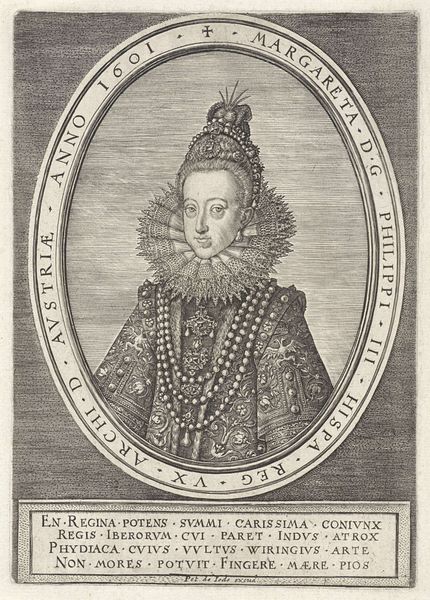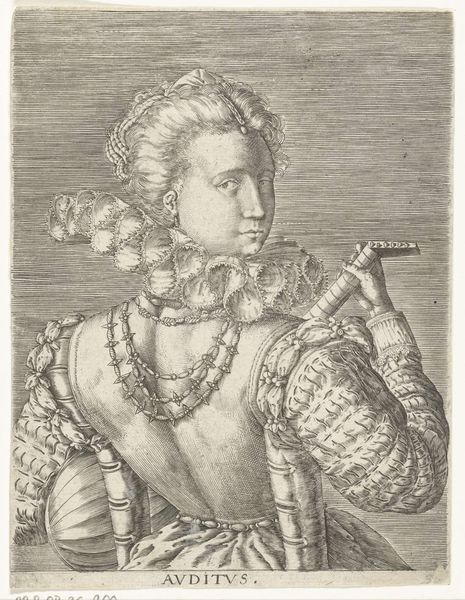
Portrait of Christine of Lorraine, Grand Duchess of Tuscany 1589
0:00
0:00
engraving
#
portrait
#
head
#
face
#
old engraving style
#
mannerism
#
famous-people
#
nose
#
portrait drawing
#
history-painting
#
facial portrait
#
italian-renaissance
#
forehead
#
engraving
#
female-portraits
Copyright: Public domain
Agostino Carracci made this engraving of Christine of Lorraine, Grand Duchess of Tuscany, in the late 16th century. This image reminds us that portraiture in early modern Europe was deeply embedded in social and political life. Notice how Carracci has depicted the Grand Duchess with great attention to detail, emphasizing her elaborate dress and jewelry. These are not merely aesthetic choices; they are visual cues designed to communicate her status, wealth, and power. Made in Italy, this portrait reflects the cultural norms of its time, where the image of a ruler was carefully constructed to project authority and legitimacy. The presence of her coat of arms further reinforces her noble lineage and dynastic connections. This was especially important for women rulers, who often had to assert their power through visual representation. The social conditions that shaped this artwork involved the patronage system of the time, where artists relied on wealthy patrons for their livelihood. By understanding the historical context and using resources like letters and archival documents, we can gain a deeper understanding of the complex interplay between art, power, and society.
Comments
No comments
Be the first to comment and join the conversation on the ultimate creative platform.
